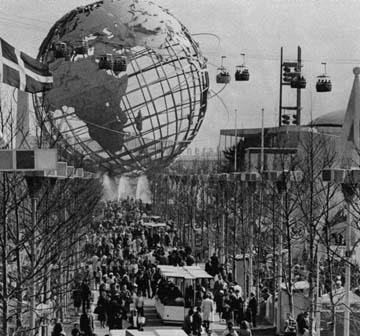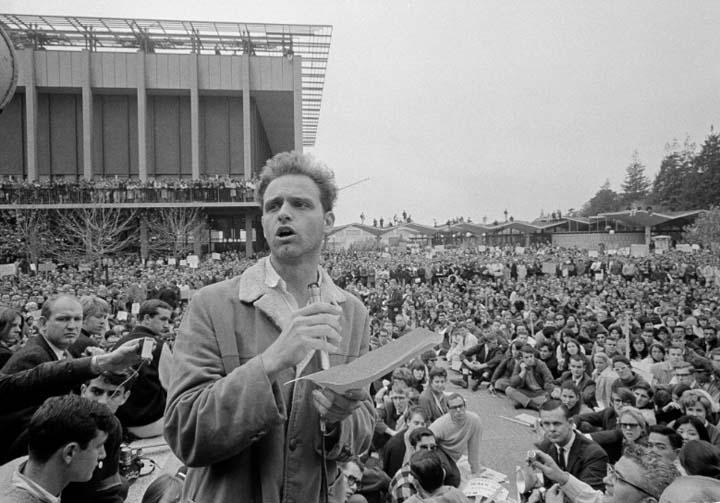Archive Fever: Times Still Are A-Changing
Fifty-three years ago on January 8th, in his State of the Union Address, President Lyndon Johnson declared a “War on Poverty.” Two days later, the first LP by the Beatles was released: Introducing…The Beatles. On January 13, Bob Dylan releases “The Times They Are A-Changing,” which goes to #20 on the U.S. singles charts. On February 1, the Beatles hit the #1 spot on the charts for “I Want to Hold Your Hand.”
On February 4th, the Government of the United States authorizes the 24th Amendment, which outlaws the poll tax. Five days later, the Beatles appear on the Ed Sullivan Show.
March 9: The United States Supr
Photo left: AP/NY Daily News
On April 22, the 1964 World’s Fair opens in New York’s Flushing Meadow Park. May 12: Twelve young men in New York City publicly burn their draft cards in the first such act of war resistance. Two weeks later, The United States State Department says that more than 40 hidden microphones have been found embedded in the walls of the U.S. Embassy in Moscow.
On June 21, Three Congress of Racial Equality [CORE] workers, Michael Schwerner, Andrew Goodman and James Chaney, are abducted and murdered near Philadelphia, Mississippi, by local members of the White Knights of the Ku Klux Klan with local law enforcement officials involved in the conspiracy. Their bodies are not found until August. On July 2, President Lyndon Johnson signs the Civil Rights Act of 1964 into law, officially abolishing racial segregation in the United States. Two weeks later, Harlem erupts in a series of race riots lasting 6 days.
On August 5, with Operation Pierce Arrow, aircraft from carriers USS Ticonderoga and USS Constellation bomb North Vietnam in retaliation for strikes against U.S. destroyers in the Gulf of Tonkin the day before.
September 11: In Jacksonville, Florida, John Lennon announces that the Beatles will not play to a segregated audience.
AP Photo/Horst Faas
October 1: Three thousand student activists at University of California, Berkeley, surround and block a police car from taking a CORE volunteer arrested for not showing his ID, when he violated a ban on outdoor activist card tables. This protest eventually explodes into the Berkeley Free Speech Movement. October 14: American civil rights movement leader Dr. Martin Luther King Jr. becomes the youngest recipient of the Nobel Peace Prize, which was awarded to him for leading non-violent resistance to end racial prejudice in the United States. October 14–15: Nikita Khrushchev is deposed as leader of the Soviet Union; Leonid Brezhnev and Alexei Kosygin assume power.
November 3: President Lyndon B. Johnson defeats Republican challenger Barry Goldwater with over 60 percent of the popular vote. November 28: United States National Security Council members, including Robert McNamara, Dean Rusk, and Maxwell Taylor, agree to recommend a plan for a 2-stage escalation of bombing in North Vietnam, to President Lyndon B. Johnson.
Mario Savio,
leader of Free Speech Movement, on UC Berkeley campus, December 1964; AP Photo/Fred W. Klein
December 3: During the Berkeley Free Speech protest, Police arrest about 800 students at the University of California, Berkeley, following their takeover of and massive sit-in at the Sproul Hall administration building. The sit-in most directly protested the U.C. Regents' decision to punish student activists for what many thought had been justified civil disobedience earlier in the conflict December 10: Dr. Martin Luther King Jr. is awarded the Nobel Peace Prize in Oslo, Norway. December 11: Sam Cooke(b. 1931), African-American singer and songwriter was shot and killed at a motel in Los Angeles, California; Che Guevara addresses the U.N. General Assembly. December 14: Heart of Atlanta Motel v. United States (379 US 241 1964): The U.S. Supreme Court rules that, in accordance with the Civil Rights Act of 1964, establishments providing public accommodation must refrain from racial discrimination. December 22: Comedian Lenny Bruce is sentenced to 4 months in prison, concluding a 6-month obscenity trial.
The Times They
Are A-Changing
By Bob
Dylan
Come gather around people
Wherever you roam
And admit that the waters
Around you have grown
And accept it that soon
You'll be drenched to the bone
And if your breath to you is worth saving
Then you better start swimming or you'll sink like a stone
For the times they are a-changing.
Come writers and critics
Who
prophesize with your pen
And keep your eyes wide
The chance won't come again
And don't speak too soon
For the wheel's still in spin
And there's no telling who that it's
naming
For the loser now will be later to win
Cause the times they are a-changing.
Come senators, congressmen
Please heed the call
Don't stand in the doorway
Don't block up the hall
For he that gets hurt
Will be he who has stalled
There's the battle outside raging
It'll soon shake your windows and rattle your walls
For the
times they are a-changing.
Come mothers and fathers
Throughout the land
And don't criticize
What you can't understand
Your sons and your daughters
Are beyond your
command
Your old road is rapidly aging
Please get out of the new one if you can't lend your hand
Cause the times they are a-changing
The line it is drawn
The curse it is
cast
The slowest now
Will later be fast
As the present now
Will later be past
The order is rapidly fading
And the first one now will later be last
Cause the
times they are a-changing.




